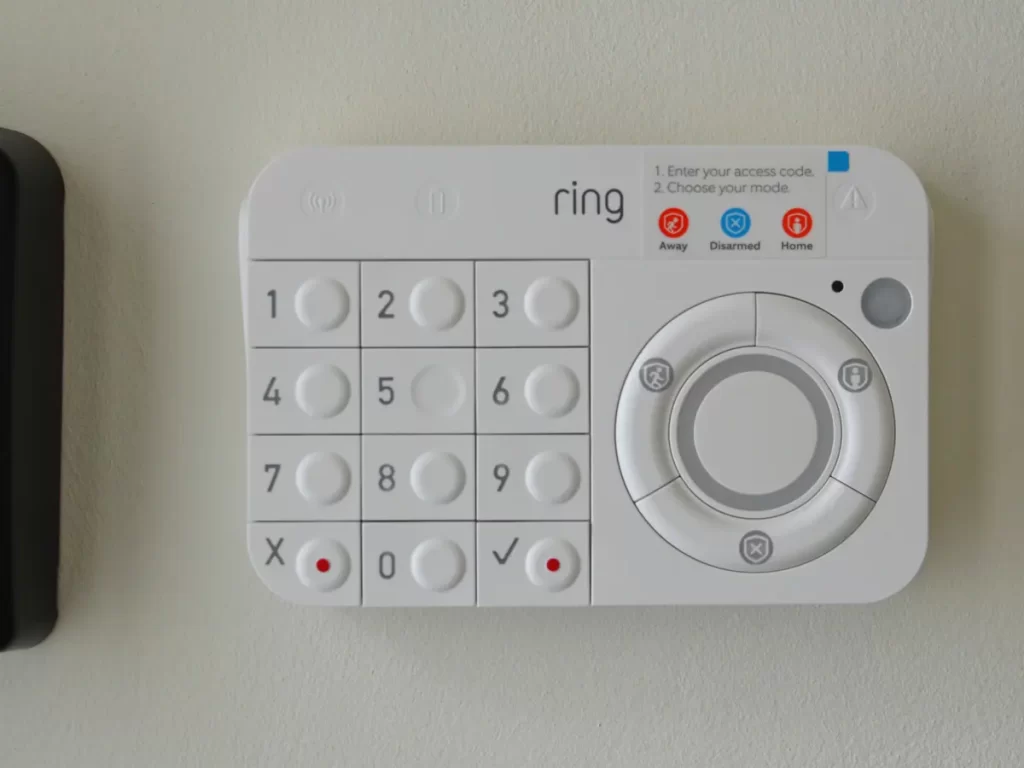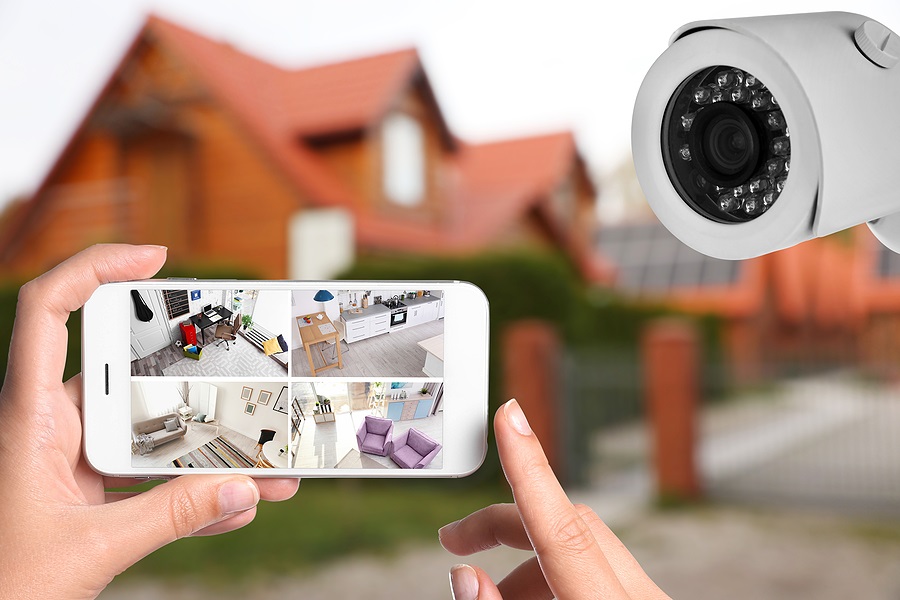Wireless or Hardwired Security Systems – Which is Right for You?
There is growing demand for security and surveillance systems, especially in homes, as people have greater concerns about keeping their families and their property safe. There are many factors to consider when picking out the right security and surveillance system for your home or business. Choices begin with determining if you want a wireless or a hardwired system.
What’s the best way to protect your property and those inside it.
Both types of systems rely on sensors installed at strategic points around your home or business, including entry points like doors and windows, as well as in hallways and other high-traffic areas. They can detect when a door or window is opened. They can also detect when someone is moving around in monitored areas the building.
Based on your preferences and settings, the system will send an alert to the central control panel. Both types of systems offer audible alarms. Following an alarm, a notification can be sent such as a telephone call, text, or an alert through a mobile app.
Like any equipment, there are pros and cons to both types of systems. Here are some of the highlights to consider:
How Wireless Security Systems Work
Wireless security systems operate through installed components that use your existing internet signal to send video to a computer and/or phone app. Wireless security systems use a secure network to keep the devices connected. These systems install easily because there is no wiring required for installation, and can offer whole-property or limited coverage, depending on your preferences. While there are many products on the market today, common examples of these types of systems include the Ring Doorbell and other Ring monitoring products, and Google Nest devices.

The components of a wireless security system share information with each other utilizing Wi-Fi and radio signals that send captured video surveillance to a receiver. The video feed is then stored remotely in the cloud. This allows footage to be saved and accessed remotely, and at future dates. Through your monitor, receiver or phone app, you can follow a quick link to access images or video clips, search by date and time, and retain footage for later viewing.
Wireless systems can be as simple as a video doorbell motion sensor with video capture, or more sophisticated whole-building monitoring.
Benefits of Wireless Security Systems:
- Elimination of the need to install and wire components to one another, so there is no disruptive installation or unsightly wires.
- Wireless systems offer more flexibility as to where cameras and sensors can be installed.
- The possibility of an intruder accessing your system by cutting wires is eliminated.
- Wireless security systems keep working, even in the event of a power outage, via a back-up battery. Your software app will notify you if any batteries are low so you can prevent a gap in security coverage.
- Easily integrated with other smart home devices.
- Very transportable, so you can take the system with you if you move or to transfer to another location.
Disadvantages of Wireless Security Systems:
- One of the biggest drawbacks is if your Wi-Fi goes down, so will your cameras and monitoring.
- They have a limited physical distance that sensors can be located from the control panel.
- The system and cameras can be vulnerable to hacking and other cyberattacks.
- You may experience interference from other Wi-Fi-equipped devices like baby monitors, or physical obstacles, such as walls.
- Since the components of a wireless security system run on batteries, you can run out of power if you aren’t diligent about replacing batteries.
- Weather can sometimes interfere with wireless signals, causing false alarms to sound or for sensors to stop working.
- You will need to pay an ongoing fee for access to video footage and storage on the cloud service used by your product’s service provider.
How Hardwired Security Systems Work
As the name suggests, a hardwired security system relies on installed wires running through the building to send information from sensors back to the central control panel. Wires must be run throughout the building to every device and sensor. Installation usually involves running wires behind walls. It can be difficult and sometimes impossible to hide all the wires in an already constructed home. While hardwired systems are more complicated to install initially, they can be less expensive in the long run and the surveillance power is more substantial than wireless systems. Wired systems can provide dependable, thorough surveillance at a residence, or extensive security coverage for commercial uses to cover the complete facility including buildings and parking lots.
One of the advantages to hardwired systems is that once you’ve purchased the equipment, in most cases, you’re done paying.
A wired security and surveillance camera records directly onto a high-capacity digital video recorder (DVR), which is connected to the internet with an Ethernet cable. Because of this hardwiring, it can continue to record even if the internet goes down. These cameras don’t need to be plugged into electrical outlets because they are powered by a central adapter, using a splitter to feed each one. Should the power go out, most systems have a backup battery pack.
One very popular feature of hardwired systems is that they can record locally to onsite (or offsite) hardware so your video recordings are not in the cloud, but on a hardware device. This means there is no dependency on the internet, monthly service charges for cloud storage, and all recordings are completely controlled by the owner.
Hardwired security systems are based on local recording and self-monitoring.
Because the hardwired system’s components communicate through wires, they tend to be less susceptible than wireless security systems to incidental radio or electrical interference or purposeful interception, blockage, tampering, and/or imitation by a hacker. Hardwired systems are also less prone to false alarms.
Another nice feature of hardwired systems is that they can cover a larger physical area in a home or business so they offer more zones of surveillance and protection. While they usually require professional installation, wired systems have a lot of options for equipment, provide greater coverage, and are more robust overall than wireless systems.
Benefits of Hardwired Security Systems:
- Fewer components with broader range of surveillance.
- Wired directly to electrical system so less likely to run out of power; battery backup packs protect during outages.
- Video is recorded and saved on a local device so there is no dependency on the internet.
- Less likely to experience electrical interference, or online tampering or hacking.
- Once the investment is made in the equipment, there doesn’t need to be any monthly fees for storage or monitoring.
Disadvantages of Hardwired Security Systems:
- Require professional installation.
- It can be difficult and disruptive to the building to install the wiring, cameras and components for the system.
- DVR input jacks limit the number of cameras that can be used.
- System is stationary, and cameras cannot be easily moved after installation.
Looking for a Home or Business Security Surveillance System?

At Downeast Audio Video, we are experts in options for security and surveillance systems, and can help you determine what is the best system for your needs. We offer a wide range of products – from wireless to hardwired, and simple, inexpensive cameras and recorders to elaborate commercial quality products. We can help ensure your home is properly protected, and that your commercial facilities have plenty of camera coverage from various angles, and close and far range of image capture.
Avoid Monthly Service Charges
Unlike other security companies, we are here to install your complete security and surveillance system, but we do not charge any monthly fees to maintain your system after installation. You own your equipment, and manage your system monitoring. We are here only to service your system should you need it. Your only ongoing cost is electricity.
Leave a Reply